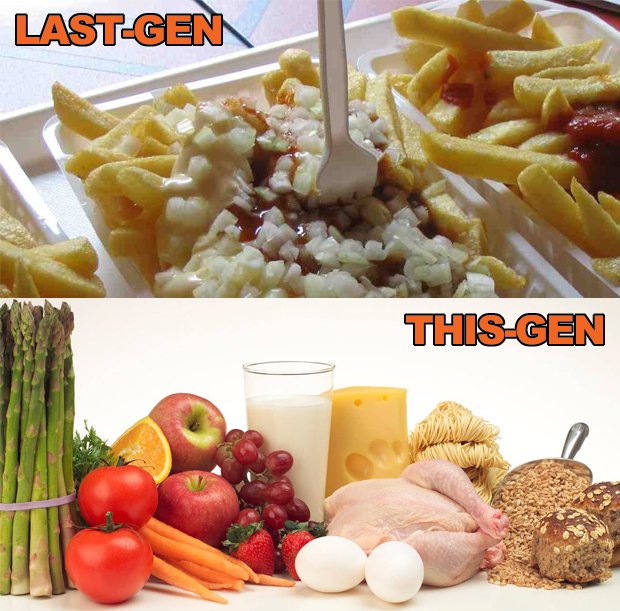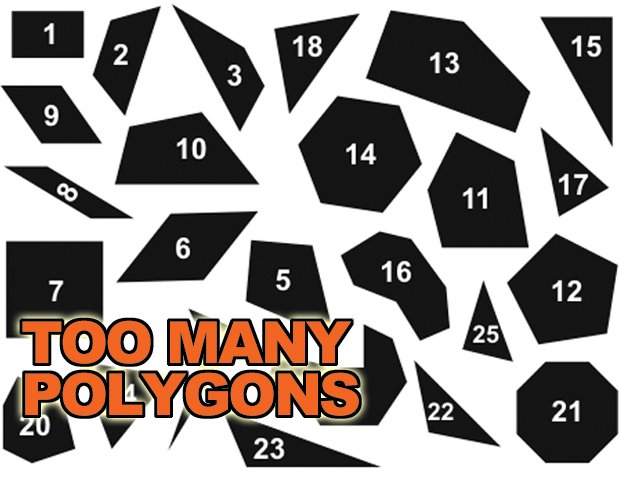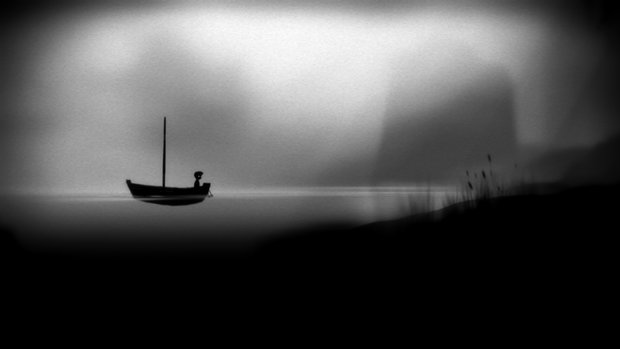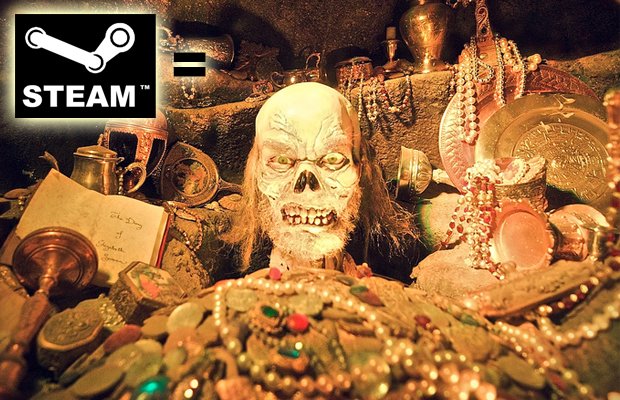Stop moaning about Activision and have some fun: Why games are healthier than ever
Corporate blockbusters and giganto-publishers be damned, gaming is the best it's ever been
Yeah, yeah, I know. Everything is an FPS, Bobby Kotick is a raging money-demon made of fun-tumours, and publishers are so obsessed with sequels that if by some accident you have made an original game, you might was well stick a number on the end of its title just to pretend. The modern games industry is a smouldering great heap of dull brains and sinister intentions.
Except it’s not. It' not at all. It’s bloody brilliant. In fact it’s the best it’s ever been, and ifyou spend all your days moaning about ityou need to shut the hell up, look beyond the end of your nose and realise that the only person ruining your enjoyment of games is in fact yourself. And over the course of this page, I’ll explain why.

Video games are in a healthier state this generation than they’ve ever been. Yes, they’re making more money than Hollywood and they’ve cracked the mainstream most triumphantly, but that’s not what I’m talking about. I’m talking about the games themselves.
You see the irony is that as much as it’s become de facto gamer behaviour to whinge about Activision and bemoan the hopelessness of it all in a daily attempt to prove how cool and credible one is, that kind of crap is just self-indulgent negativity towards an easy target that achieves nothing more than to stop you enjoying all the good that massively outweighs the Kotick.
People moan about big companies flattening indie development, but if you actually make the effort to look around, it’s doing just fine, thank you very much. Yes, huge, triple-A games developedby independents are an increasingly rare occurance as spiralling budgets and financial risks proliferate, but on a smaller level, things are great. In fact there’s now a whole new market that we never had before.

Last gen, if you wanted to be noticed on home consoles, indie or not, you had to make a big budget 3D game. Fact. Think of knocking out a 2D platformer or adventure game and you might as well have eaten a slice of cyanide pie before you even started coding. Put down the rose-tinted paint pot and you’ll realise that last-gen was even more about safe-bets than this one. Through the rise of digital distribution, more interesting , experimental games can happen now. And not only that, but they can have massive success.
We lost something when things went 3D in the 32-bit era. We lost a certain kind of game design, and more than that, we lost what that game design was going to evolve into. For two generations it was gone, and games became severely limited as a medium, however technically impressive they may have been. But now we have XBLA. We have the PSN. We have WiiWare, DSiWare and Steam. Small devs with small budgets and off-kilter ideas now have a voice again and a focusedforum fordistributing to a large-scale, mainstream audience. And all of that givesthis generation’s machines (andmore importantlytheir audiences) a more eclectic, accepting, experimental culture than they’ve ever had.
Sign up to the GamesRadar+ Newsletter
Weekly digests, tales from the communities you love, and more
Think about it. Would last generation’s mainstream gamers have gone loopy over Braid? Would the insane humour of Castle Crashers ever have picked up a following? Would the hardcore 2D perfection of Geometry Wars or Bionic Commando: Rearmed have found an audience? Would the entire internet have worshipped at the dark cathederal of Limbo? No. None of these things would have happened at all.

Above: All the justification this generation needs
Downloadable gaming networks have reintroduced this kind of gaming to console culture, they’ve switched the audience back on to the full possibilities of games as a medium, and just as importantly, the explosion of social networking, both on and off consoles, has created a never-more-thriving, never-more enthusiastic gaming community that promotes good new games by word of mouth faster, more efficiently, and with better targeting than any marketing department could ever hope to.
And it’s not just about consoles (as great as the D/L services on them are, the old problem of platform-holder as gate-keeper still prevails to a degree). If you’ve got even a semi-decent PC, get on Steam and spend an hour ploughing through the store and getting involved in the community. You’ll discover a million and one games you’ve never heard of – hell, probably a few genres you’ve never heard of - at least half of which you’ll be interested in looking into further.

Above: Dessicated pirate head optional
The spectrum of what’s now available as a result of the total freedom of PC development is frankly ludicrous, and the majority of it is dirt cheap to buy. The incentive to take a chance on new experiences has never been greater, for devs or for gamers. And then there’s the iPhone as well…
Limbo. Braid. Trials HD. Castle Crashers. Super Street Fighter II Turbo HD Remix. Leave Home. Canabalt. Kaleidoscope. Joe Danger. Fl0w. Flower. PixelJunk everything. Echochrome. Burn, Zombie, Burn! Noby Noby Boy. Bionic Commando: Rearmed. Deathspank. The Path. Penumbra. Critter Crunch. Doodle Jump. Angry Birds. God Finger. None of these games would have existed last generation, and if anyone had been brave enough to squeeze them out, they would have tanked. Now however, they’re as big a part of the landscape as anything else. And there's still all the blockbuster stuff alongside. Games. Amazing now. That's what they are.
So everyone's jumping on themotion control bandwagonand some idiot has compared Captain Price to Han Solo. Who cares? There are more important things to concentratate on.
But what do you think? Should gamers just lighten the hell up, get their heads out of the misery sand and start looking a little further for cool stuff to play? Or am I being ludicrously optimistic, and is it all actually a big ball of toss? Let me know in the comments, or via our jumping littlenight spotsonFacebookandTwitter.



